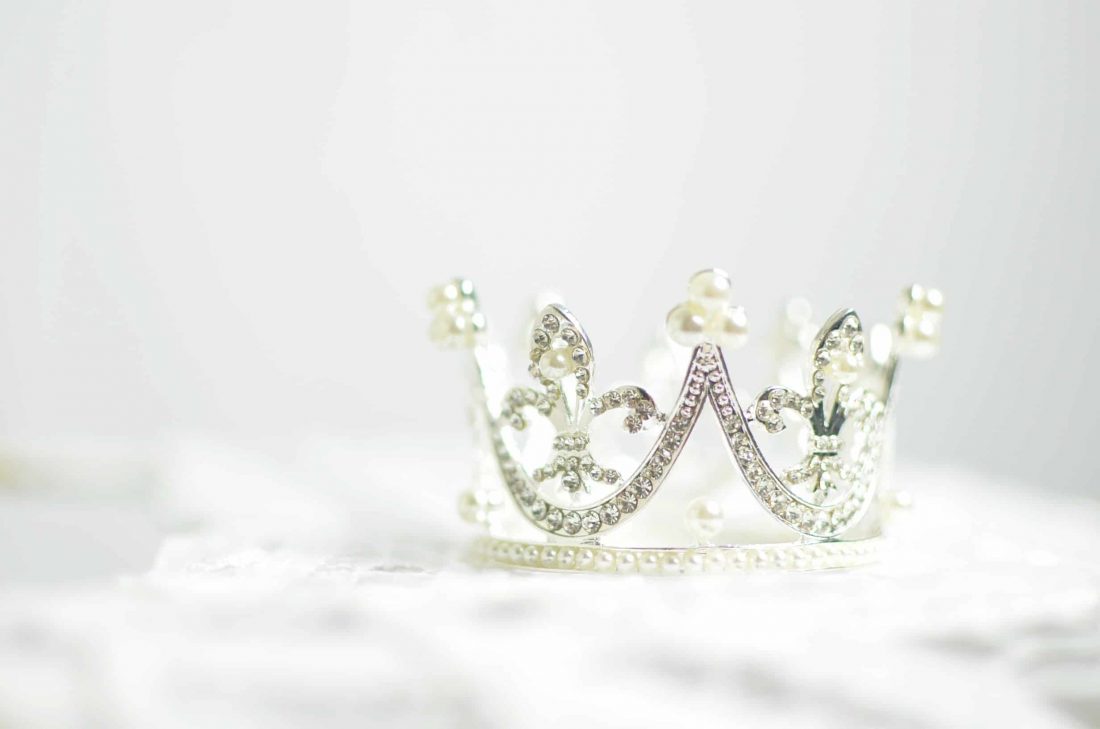
Myths about Personal Assistance
Author: María José Núñez
Translation: Emily Benton
We live in a world surrounded by myths, beliefs and even fantasies about pretty much everything around us. Could the reason be that we think we know everything but really we know nothing? Maybe this is an overly catastrophic reference. Rather, we need to simply accept that we cannot be experts in every field and should therefore pay more attention to the reality surrounding us with humility, without prejudice and, above all, with perspective. So, what does that have to do with the personal assistants? Today, we would like to analyse this topic as there are several false beliefs regarding what we refer to as the ‘personal angel’. Not only in cinematography, but also in real life…
(Sigue en español)
How about we discuss some of those labels that have been given to PAs, pretty much since the profession began, and still unknown to some? You don’t need to know much about the world of the personal angel for a couple of ideas to come to mind that embody some of these ‘myths’: the first one is that most of them are women and the second is that it is a ‘stepping stone’ job. It’s time to destroy (figuratively-speaking, of course) these two beliefs.
-Taking into account that we are talking specifically about the concept of the personal angel (PAn) instead of personal assistants (PAs), we have data that shows that within the world of the PAn, there is a gender balance, as opposed to what we have, until now, called personal assistants, which is predominantly a female occupation.
– Regarding the ‘stepping-stone’ job, it is certainly true that through working in this field, you make a lot of contacts and the more time you work for a client, the better they get to know you… But that doesn’t necessarily mean that it is a ‘stepping-stone’ job, but rather a professional career in and of itself. Furthermore, it tends to be a long career – there are PAn who are over 55. The main reason for this is simple: it is a profession based on trust.
So what makes a personal angel different (compared to a personal assistant)?
- The PAn works only for the elite. They are experts in lifestyle management for people of great wealth, business leaders and families with an elevated social status. This line of work requires certain rules, ways of doing things and a high level of experience and specific knowledge.
- Most of the time, the PAn is unknown as there is an extremely secure non-disclosure agreement.
- They know perfectly well how to resolve the requests and necessities of the client, even before the client knows or requests them. They are more proactive than reactive.
- They don’t take care of corporate tasks, but rather focus on the organization of their private lives, that are usually so extraordinary and complicated.
Let’s discuss some other myths: many believe that a PA is hired by the client to be their assistant, collaborator and support only within a business context. They also believe that only celebrities have a personal angel. Let’s debunk these two statements:
– Until now, what we understood as a personal assistant was generally hired by a client to deal strictly with work and corporate issues. What we now find is a proactive role and more so with the incorporation of remote work, which don’t just involve corporate issues, but also personal and, more specifically, lifestyle ones.
-Now let’s debunk the eternal fantasy that the only people interested in a PA are celebrities. Having a personal angel is nowadays more related to the economic level, salary, technology, and their role in the business… PAs are also hired for business projects. However, it is important to take into account that a secretary or management assistant is not the same as a personal angel.
Another observation that seems to come with the idea of a PA is the myth of the junior personal assistant, thus connecting the profession with age and assuming that it is role only for someone who is young, when in reality it doesn’t have to be that way.
Other questions surrounding the PA
When we fully enter into detail regarding the role, history, position and characteristics of the personal assistant in the 21st Century, we start to unfold many aspects more that have been developed and have changed the concept of the PA as we have know it up until now.
We are firstly referring to the democratisation of the sector (there are many freelancers), as well as the virtual assistants who have also entered the scene, with intelligent personal assistants such as Siri, Google Assistant, Alexa, Cortana… although, we of course cannot compare these to a personal angel in real life.
Therefore, despite the fact that it has yet to be seen whether a robot will be able to substitute the capacity (both personal and emotional) of a person who takes on such important tasks and that incorporates as many skills as a personal angel has to (at TLI we have set out 137 skills and capabilities), one question has led to another and now our question is whether being a PA is something vocational or organic? Is being a personal angel something you want from the offset or is it a case of one thing leading to another and therefore leading you to your dream profession? And finally, what aptitudes should a personal assistant have? Don’t miss our next chapter, where we will continue exploring these topics, point by point, delving into the fine details of our beloved profession!
Mitos sobre la asistencia personal
Vivimos rodeados de mitos, creencias o incluso fantasías acerca de todo lo que nos rodea. La razón: ¿pensamos que lo sabemos todo y realmente no sabemos nada? Quizá sea ésta una referencia demasiado catastrofista. Más bien, simplemente hemos de asumir que no podemos ser expertos en todas las materias y prestar más atención a la realidad que nos rodea; con humildad, sin prejuicios y, sobre todo, con perspectiva. ¿Y qué tiene eso que ver con la figura del ‘personal assistant’? Se trata del asunto que hoy queremos analizar con vosotros, pues hay una importante serie de falsas creencias en torno a lo que nosotros denominamos ‘personal angel’. Y no sólo porque en el séptimo arte sino también en la vida real…
¿Qué te parece si enumeramos esa serie de ‘etiquetas’ que se nos han impuesto a los PA casi desde el principio de los tiempos en los que surgió esta profesión (todavía desconocida para algunos)? Sin necesidad de conocer el mundo de los personal angel en primera persona, seguramente te vengan dos ideas a la mente al poner en la palestra el tema de ‘mitos’: una, que la mayoría son mujeres; y dos: que se trata de un ‘trabajo-trampolín’. Ha llegado el momento de ‘destruir’ (en el sentido figurado) estas dos creencias:
-Teniendo en cuenta que nosotros hablamos del concepto específico ‘personal angel’ (PAn) en lugar del personal assistant (PAs), obtendremos el dato de que entre los PAn existe un equilibrio de género, pues en lo que hasta ahora hemos denominado personal assistant sí que había una predominancia femenina.
-En cuanto a ‘trabajo-trampolín’, bien es cierto que ejerciendo esta profesión ganas muchos contactos, y que cuanto más tiempo estés trabajando para un cliente, mejor se te conoce… Pero no es necesario que sea un trabajo-trampolín, sino que puede ser -y es- una carrera profesional en sí misma, y además, de largo recorrido, porque hay experimentados PAn que pasan de los 55 años de edad. Y la principal razón es simple: es una profesión basada en la confianza.
¿En qué se diferencia el personal angel (respecto a la figura del personal assistant)?
- El PAn trabaja sólo para la élite. Experto en gestionar estilos de vida de las grandes fortunas, líderes empresariales o familias de estatus social. Y ello, requiere de unas normas, formas de hacer y nivel de experiencia y conocimiento específicos.
- La mayoría de las veces los PAn son desconocidos, ya que hay un acuerdo de no divulgación extremadamente blindado
- Sabe resolver perfectamente las peticiones y necesidades del cliente, incluso antes que éste lo sepa/pida. Su perfil, aparte de ser ejecutivo, es más proactivo que reactivo.
- No sólo se ocupa de asuntos corporativos, sino que domina la organización y gestión de las vidas privadas, tan extraordinarias y complicadas.
Vamos a sumarle otros mitos: se cree que el PA es contratado por el cliente para ser su ayudante, colaborador y apoyo únicamente en temas corporativos. Y además, que sólo cuentan con un personal angel las celebridades. Te vamos a derribar estas dos afirmaciones:
-Hasta el momento, lo que conocíamos como personal assistant solía ser ‘fichado’ por el cliente en cuestión para temas estrictamente laborales y corporativos. Actualmente, nos encontramos con un rol proactivo, y más, con la incorporación del teletrabajo, donde no sólo entran asuntos corporativos; también personales y, en definitiva, de lifestyle.
-Y pasamos a ‘desmentir’ la eterna fantasía de que los únicos interesados en contar con un PA son las celebrities. El contar con un personal angel ahora está más ligado al nivel económico, al salario, a la tecnología, a las funciones… Además, también se contrata a un PA para proyectos empresariales. No obstante, hay que tener en cuenta que no es lo mismo un secretario o ayudante de dirección, que un personal angel.
Otro distintivo que parece que viene dado al puesto de PA, es el mito del personal assistant junior, es decir, ligar esta profesión con la edad, asumiendo que es una ocupación para alguien joven, cuando no tiene por qué ser así.
Otras cuestiones en torno al PA
Adentrarnos de lleno en las funciones, historia, posición y características del personal assistant del siglo XXI nos hace desengranar otros muchos aspectos que se han ido desarrollado y cambiando la figura de lo que conocíamos hasta el momento.
Nos referimos, en primer lugar, a la democratización del sector (hay muchos freelance) y también aparecen en escena los virtual assistant, con asistentes personales inteligentes como Siri, Google Assistant, Alexa, Cortana… Aunque, por supuesto, no vamos a comparar esto último con la figura de personal angel.
Por ello, independientemente de que aún esté por ver si un robot podrá sustituir la capacidad (personal y emocional) de una persona para realizar tareas tan importantes y que engloben tantas habilidades como las de un personal angel (137 habilidades y capacidades hemos determinado desde TLI), una pregunta nos ha llevado a la otra, y ahora, nuestra cuestión sería: ¿ser PA es algo vocacional u orgánico? ¿Querías ser personal angel desde el principio o una cosa te llevó a la otra y acabaste descubriendo en ésta la profesión de tus sueños? Y por ende, ¿qué aptitudes ha de tener, entonces, un personal assistant? ¡No se pierdan el próximo capítulo, donde seguiremos ahondando, punto por punto, acerca de los entresijos de nuestra querida profesión!





